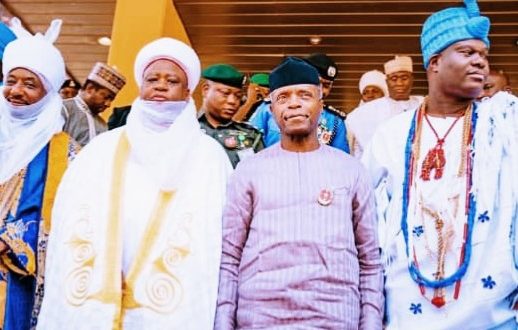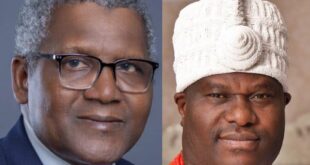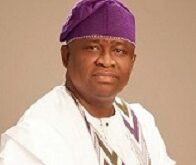By AbuSatar Hamed
 ABUJA: President Muhammadu Buhari has said that it is the moral authority of the Royal Fathers that can deal a death blow to the terrible scourge that today destroys the lives of thousands of our young persons.
ABUJA: President Muhammadu Buhari has said that it is the moral authority of the Royal Fathers that can deal a death blow to the terrible scourge that today destroys the lives of thousands of our young persons.
Vice President Yemi Osinbajo (SAN) who represented the President at the Nigerian Assembly of the National Council of Traditional Rulers of Nigeria, tagged: Imperative of Community Policing and Menace of Drug Abuse: The Role of Traditional Rulers” which took place onDecember 11, 2019.
His words: “It is the combined effect of the corrective and coercive powers of State agencies and actors, and the moral authority of the throne that we believe can deal a death blow to this terrible scourge that today destroys the lives of thousands of our young persons”
“If the traditional institution declares a particular practice as wrong and worthy of condemnation, or affirms it as right and laudable, such messages of prohibition or affirmation go a very long way.”
Read full text of the speech below:
REMARKS BY HIS EXCELLENCY, PRESIDENT MUHAMMADU BUHARI, GCFR, DELIVERED BY PROF. YEMI OSINBAJO, SAN, GCON, VICE PRESIDENT AT THE 11th GENERAL ASSEMBLY OF THE NATIONAL COUNCIL OF TRADITIONAL RULERS OF NIGERIA, THEMED: IMPERATIVE OF COMMUNITY POLICING AND MENACE OF DRUG ABUSE: THE ROLE OF TRADITIONAL RULERS, ON THE 11TH OF DECEMBER, 2019
Protocols
It is a great honour to be here with Your Royal Majesties at this 11th General Assembly of the National Council of Traditional Rulers of Nigeria. It is also a great pleasure to have another opportunity to dialogue with this distinguished audience on some issues of importance to the development and progress of our nation. I bring the warmest greetings from President Muhammadu Buhari, on whose behalf I am here today and whose remarks I have the privilege of presenting to you.
The theme of this assembly, “Imperatives of Community Policing and Menace of Drug Abuse: The Role of Traditional Rulers”, is a particularly pertinent one. The theme speaks of two different but complementary subjects. One, a social problem and the other a strategy for preventing and combatting social problems. But most importantly, the theme suggests and I believe most perceptively that traditional rulers have crucial roles to play in both.
Societies are held together by a consensus, whether implicit or complicit, on certain ideals and values. Most of these values are universal; the sanctity of life, the dignity of labour, personal and corporate integrity and importance of family. Traditional institutions are regarded as the custodians of these values, embodying the highest and noblest ideals of the people.
This is why even where traditional rulers are non-state actors and do not have the coercive force of the State’s law enforcement machinery, they are nonetheless strong and potent arbiters of accepted morality and social behaviour. This is why the intervention of traditional authority in combating any social problem carries unique effectiveness and potency.
If the traditional institution declares a particular practice as wrong and worthy of condemnation or affirms it as right and laudable, such messages of prohibition or affirmation go a very long way.
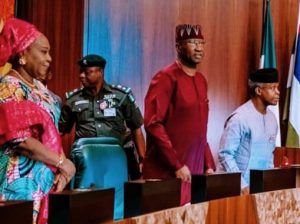 Indeed, your Royal Majesties possess a moral authority that arguably transcends the legitimacy conferred on political leaders by electoral cycles. It is this moral authority that we respectfully urge your Royal Majesties to exercise against drug abuse in your domains. It is the combined effect of the corrective and coercive powers of State agencies and actors, and the moral authority of the throne that we believe can deal a death blow to this terrible scourge that today destroys the lives of thousands of our young persons.
Indeed, your Royal Majesties possess a moral authority that arguably transcends the legitimacy conferred on political leaders by electoral cycles. It is this moral authority that we respectfully urge your Royal Majesties to exercise against drug abuse in your domains. It is the combined effect of the corrective and coercive powers of State agencies and actors, and the moral authority of the throne that we believe can deal a death blow to this terrible scourge that today destroys the lives of thousands of our young persons.
We are, your majesties, faced with a major drug abuse and addiction problem. The 2018 National Drug Use Survey indicates that there are 14.3million drug users between the ages of 15 and 64. Drug use is most common among those between the ages of 25 and 29 years which are the years of peak productivity in anyone’s lifespan. In effect, young Nigerians that should be in the prime of their lives are being ravaged by the plague of substance addiction. In addition, Nigeria’s drug use prevalence rate is almost three times above the global prevalence rate.
These figures are stark and their implications dire. Substance addiction poses a clear and present danger to public health and public safety. However, I invite you all to consider the complexity of drug abuse as a crime.
The diversion of opioid-based medications like tramadol and cough syrups containing codeine from their prescribed medical use to the illicit market has already created an epidemic of substance abuse with a corresponding rise in related mental and neurological ailments of various kinds.
High-risk behaviour such as the use of unsterilized needles for injections could now lead to an increase in the incidence of HIV, Hepatitis B and C, and other blood-borne diseases.
We are now at the onset of a public health emergency. Consequently, drug abuse is as much an illness as it is a crime, and we must address it accordingly by combining best practices in public health management with common sense criminal justice approaches that emphasize the reformation of young offenders.
We must treat the affected, not ostracize them. We must work together to establish valuable prevention and resolution mechanisms, ensuring that young people everywhere are educated on the gravity of the risks involved in drug abuse.
In 2018, I inaugurated the Presidential Advisory Committee on the Elimination of Drug Abuse to address this challenge. The Committee has concluded its assignment and submitted its report.
In order to effectively implement its recommendations on drug demand reduction, governments at all levels must work together with traditional rulers. But it is perhaps in the functioning of community policing that the collaboration between traditional and State authority is most imperative.
The reasons are obvious. First, is surveillance and the provision of intelligence. As community leaders, you are much more familiar with your immediate environment than any State law enforcement agents or agencies can aspire to be from their remote perches. As such, the vast network of confidence open to traditional institutions is uniquely positioned to provide the government with valuable intelligence that can help detect criminal activity early and prevent or stop such before it escalates.
Second is the monitoring and maintenance of the community policing structures. By virtue of your positions, your majesties will be able to see what works and what does not, and ultimately, because you are largely immune from the upheaval of each four-year political term, traditional fathers can ensure that these structures of community policing are maintained and improved beyond the terms of the elected national and State leaderships.
Thirdly, is in the moderation of the activities of all actors especially the civilian participants in community policing to ensure that the community police system does not become oppressive on the people and communities that they are to serve, and that there are no abuses of power or high handedness in the enforcement of laws.
Your Royal Majesties, I thank you for your unrelenting efforts in tackling some of the deepest and most malignant social ills in our societies.
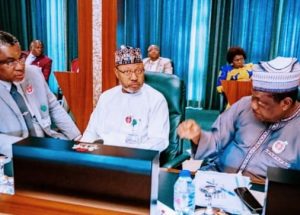 I hope that the discussions here will be fruitful, offering innovative solutions to some of these issues that constitute the theme of this General Assembly and many that are collateral to it.
I hope that the discussions here will be fruitful, offering innovative solutions to some of these issues that constitute the theme of this General Assembly and many that are collateral to it.
On this note, it is now my very special pleasure and privilege to declare this 11th General Assembly of the National Council of Traditional Rulers of Nigeria.
Thank you and God bless you.
 Startrend International Magazine For Your Latest News And Entertainment Gists
Startrend International Magazine For Your Latest News And Entertainment Gists


